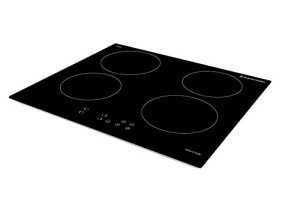Induction Hob Precautions: Ensuring Safety and Efficiency
Induction cooking has changed the culinary landscape by providing quicker cooking times, accurate temperature control, and an energy-efficient alternative to conventional approaches. Nevertheless, with these modern home appliances come specific precautions that users should observe to ensure security and ideal performance. top article looks into the different precautions to take when utilizing an induction hob, intending to provide users with the understanding to enhance their cooking experience while avoiding prospective incidents.
Comprehending Induction Hobs
Before diving into precautions, it is important to comprehend what an induction hob is. Induction hobs utilize electro-magnetic fields to heat pots and pans directly while keeping the hob surface relatively cool. This approach of cooking is not just energy-efficient however likewise permits quick temperature level modifications, making it a preferred among home cooks and expert chefs alike.
Security Precautions When Using an Induction Hob
While induction hobs are normally safe, users should remain vigilant and adhere to best practices. Here are some safety precautions to consider:
1. Proper Cookware Selection
Induction hobs work just with ferrous (magnetic) cookware. Here are the kinds of pots and pans ideal for induction cooking:
- Cast Iron: Excellent heat retention and circulation.
- Stainless Steel: Heavy-bottomed alternatives usually work well.
- Carbon Steel: Similar advantages to cast iron, with lighter weight.
The following pots and pans products are not suitable for induction:
- Glass cookware
- Aluminum pots and pans (unless it has a magnetic base)
- Copper pots and pans
2. Keeping the Cooking Surface Clean
To keep an efficient induction hob, it is crucial to keep the cooking surface area clean:
- Wipe spills right away to avoid them from baking onto the surface.
- Use mild, non-abrasive cleaners to avoid scratching the glass surface.
- Prevent cleaning the hob while it's hot to avoid burns.
3. Ventilation
Even though induction cooking produces less heat, making sure that the cooking area is well-ventilated is critical:
- Open windows or use exhaust fans to distribute steam and smells.
- Preserve airflow to prevent overheating the device.
4. Prevent Blocking Ventilation Vents
A lot of induction hobs include ventilation systems. It's important not to block these vents during operation:
- Ensure there's at least a few inches of area around the hob.
- Prevent putting items on top of or around the hob that could obstruct air flow.
Electrical Precautions
Managing electrical appliances requires specific precautions to make sure user security. Here are some tips to think about:
- Check Wiring: Ensure that the induction hob's outlet can manage its power requirements. Most hobs require a dedicated circuit.
- Prevent Water: Keep the hob and the surrounding location dry to prevent electrical shocks.
- Unplug when not in usage: If the induction hob is portable, disconnect it after each use to decrease risk.
Utilizing the Right Settings
Induction hobs come geared up with different settings, and comprehending how to utilize them can prevent cooking mishaps:
- Temperature Control: Familiarize yourself with the temperature settings to prevent overheating pots and pans.
- Timer Function: Utilize the timer feature to prevent overcooking or burning food.
- Automatic Shut-off: Many models come with automated shut-off features; nevertheless, it's essential not to rely entirely on this function.
FAQs
What kinds of pots and pans will not deal with an induction hob?
Cookware made from non-magnetic materials like glass, aluminum, and copper (unless specially designed with a magnetic base) will not heat up on induction hobs.
Can I utilize my existing cookware on an induction hob?
You can inspect if your existing pots and pans is induction-compatible by carrying out the magnet test; if a magnet adheres to the bottom, it can be used on an induction hob.
Are induction hobs safe for kids?
While induction hobs are much safer than gas or electric choices in terms of surface area heat, it's still recommended to supervise children around the kitchen area and educate them on the importance of kitchen area safety.
Is it required to have an unique cooling system for an induction hob?
Most modern induction hobs have integrated cooling systems that suffice for routine use. However, guarantee that ventilation and airflow are not blocked.
Induction cooking offers a blend of innovation and safety, making it a favored choice for lots of households. Understanding and sticking to appropriate precautions can boost the performance and life expectancy of an induction hob while ensuring a safe cooking environment. By following the guidelines outlined in this short article-- such as picking the best cookware, maintaining cleanliness, ensuring proper electrical precautions, and using the appropriate settings-- users can delight in the benefits of induction cooking with peace of mind.
With appropriate care and adherence to security procedures, induction hobs can work as a fantastic and effective tool in the modern kitchen area.

